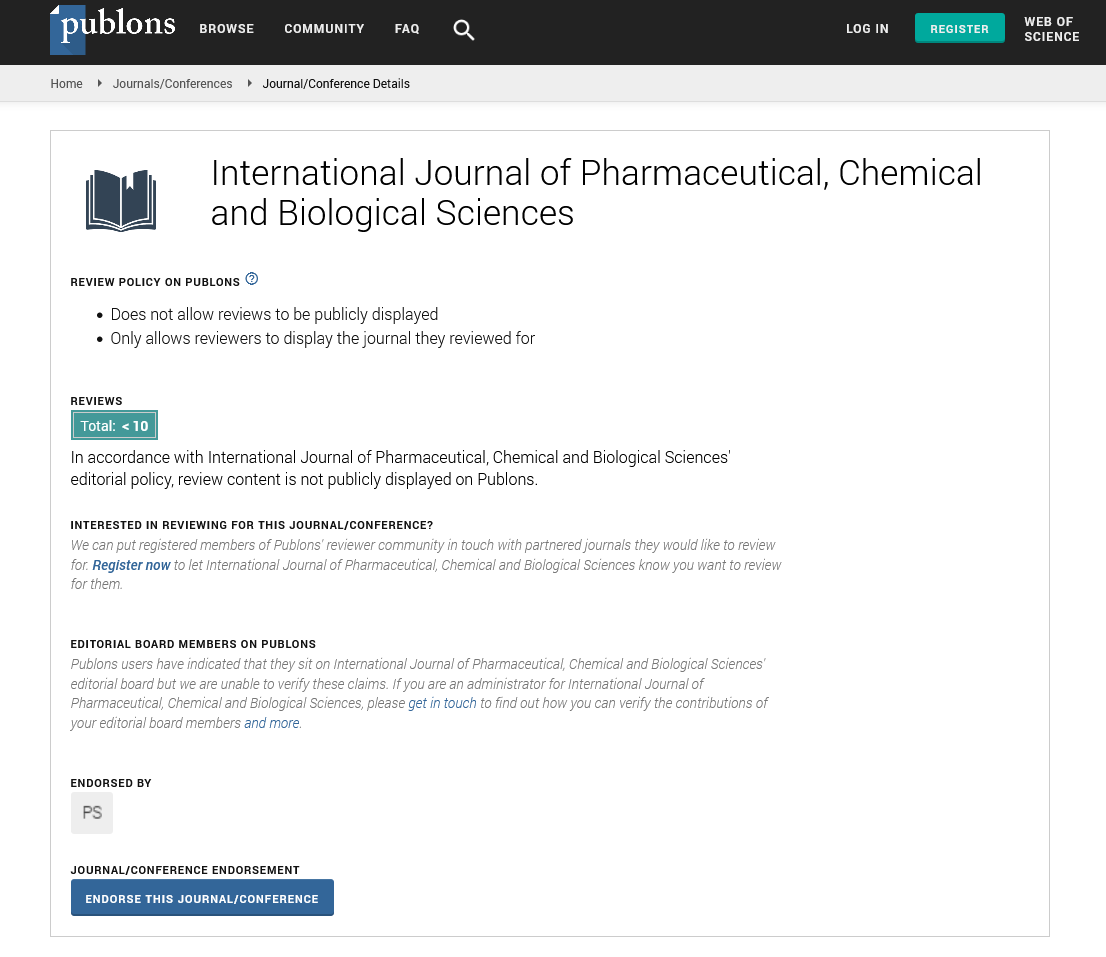Commentary - International Journal of Pharmaceutical, Chemical and Biological Sciences ( 2023) Volume 13, Issue 2
Unlocking the Secrets of Life: The Power of Bioinformatics
John Mark*John Mark, Department of Chemistry, University of South Carolina, USA,
Received: 31-May-2023, Manuscript No. ijpcbs-23-113769; Editor assigned: 02-Jun-2023, Pre QC No. ijpcbs-23-113769 (PQ); Reviewed: 16-Jun-2023, QC No. ijpcbs-23-113769; Revised: 21-Jun-2023, Manuscript No. ijpcbs-23-113769 (R); Published: 28-Jun-2023, DOI: 10.36648/2471-9668-13.2.4
Abstract
References
Real Estate in Italy Blog | Places to Visit in Poland Blog | Places to Visit in Portugal Blog | Places to Visit in Russia Real Estate in Argentina Blog | Places to Visit in Turkey Cyber Technologies Articles Blog | Places to Visit in India Real Estate in Netherlands Casino Sites in Ukraine Blog | Biotechnology Article Auto Insurance in Illinois Blog | Computer Technologies Articles Car Insurance in Washington and Georgia Cordblood Journals Blog | Electronic Technologies Articles Dental Care Journals Blog | Emerging Technologies Articles Best Betting Sites in Italy Blog | Environmental Technologies ArticlesDescription
In the era of big data and rapid scientific advancements, bioinformatics has emerged as a critical discipline that blends biology with computational science. It plays an indispensable role in decoding the complex and intricate mysteries of life. Bioinformatics encompasses a wide range of techniques and tools to analyze and interpret biological data, from DNA sequencing to protein structure prediction. In this article, we’ll explore the fascinating world of bioinformatics and its profound impact on various fields of life sciences. One of the most significant contributions of bioinformatics is its role in the genomic revolution. The Human Genome Project, completed in 2003, marked a monumental milestone in biology. It involved sequencing the entire human genome, consisting of over 3 billion base pairs. Bioinformatics played a central role in managing, analyzing, and interpreting this colossal dataset. This project paved the way for personalized medicine, enabling researchers to understand genetic variations and their implications in diseases, drug responses, and more. Bioinformatics tools are indispensable for studying evolutionary relationships among species. By comparing genetic sequences, scientists can reconstruct phylogenetic trees, depicting the evolutionary history of organisms. This information is crucial for taxonomy, biodiversity conservation, and understanding how life on Earth has evolved over billions of years. Proteins are the workhorses of cells, carrying out various functions necessary for life. Bioinformatics aids in predicting the structure and function of proteins based on their amino acid sequences. This knowledge is invaluable for drug discovery, as it helps identify potential drug targets and understand how drugs interact with proteins at the molecular level. In the pharmaceutical industry, bioinformatics plays a vital role in drug discovery and development. Virtual screening, molecular docking, and pharmacophore modeling are computational techniques used to identify potential drug candidates. These methods expedite the drug development process, reducing costs and increasing the chances of finding effective treatments for various diseases. With the advent of high-throughput technologies, vast amounts of biological data are generated daily. Bioinformatics tools and algorithms are essential for mining this data to uncover hidden patterns, associations, and biological insights. From identifying disease biomarkers to discovering novel genes, data mining is a powerful tool in advancing our understanding of biology and medicine. Bioinformatics is at the forefront of personalized medicine, tailoring medical treatments to individual patients based on their genetic makeup. By analyzing an individual’s genome, clinicians can predict disease susceptibility, drug responses, and even recommend lifestyle changes. This approach promises more effective and less risky medical interventions. Despite its immense potential, bioinformatics faces several challenges. Managing and analyzing large-scale biological datasets require powerful computational resources and expertise. Additionally, ethical concerns related to genetic privacy and data security must be addressed as personalized medicine and genomic testing become more widespread. As we move forward, bioinformatics will continue to evolve and expand its applications. Advanced machine learning and artificial intelligence techniques are being integrated into bioinformatics to enhance predictive accuracy and automate data analysis. This promises to accelerate discoveries in fields like genomics, proteomics, and drug development. Bioinformatics is revolutionizing our understanding of life at the molecular level. It has become an indispensable tool in genomics, proteomics, drug discovery, and personalized medicine.
Acknowledgement
None.
Conflict Of Interest
None.

